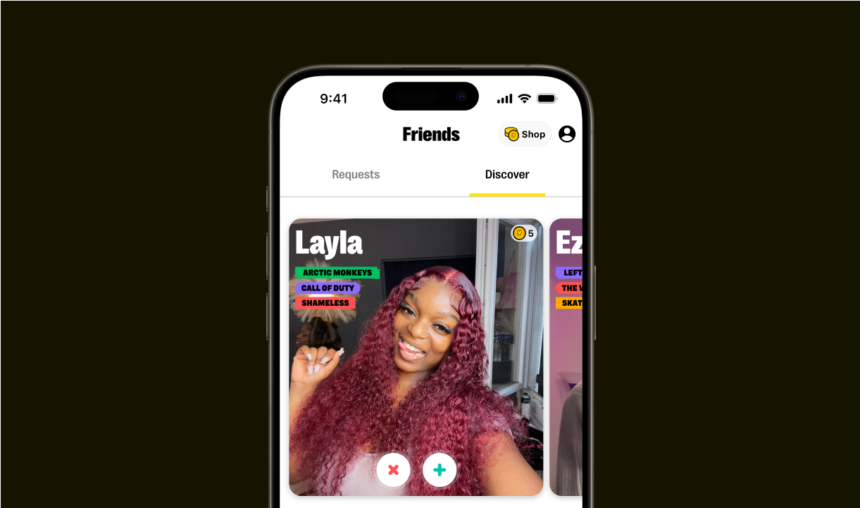Yubo’s emphasis on genuine interaction over engagement metrics offers a blueprint for healthier digital spaces.
Live social discovery platform Yubo might be able to help reverse an alarming trend: Generation Z’s plummeting happiness levels. Findings from the 2024 World Happiness Report paint a stark picture of young people’s declining mental health, with those aged 15 to 24 reporting significantly lower satisfaction than older generations.
Here’s where things get really concerning: The United States dropped out of the top 20 happiest nations, with under-30s ranking 62nd globally — below Mexico. British youth landed at 32nd place, trailing behind nations like Moldova, Kosovo, and El Salvador. This dramatic shift prompted immediate concern from health officials and researchers worldwide.
U.S. Surgeon General Dr. Vivek Murthy addressed this decline head-on, comparing allowing children to use traditional social media to giving them medicine that wasn’t proven safe — a powerful indictment of current platform design. The data supports his concern: American teens spend nearly five hours daily on social media, with a third staying awake until midnight on weeknights, tethered to their devices.
Let’s put this in perspective. Professor Jan-Emmanuel De Neve, editor of the World Happiness Report, stated, “It was once a well-established notion that ‘kids start out happier before they slide down the U-curve toward a midlife crisis before it picks up again.’ To think that in some parts of the world, children are already experiencing the equivalent of a midlife crisis demands immediate policy action.”
So, what makes Yubo different? The platform is designed to mirror the ease and spontaneity of offline interactions, creating a space where Gen Z users feel genuinely connected rather than isolated. By focusing on real-time, face-to-face interactions through live video rooms, Yubo replicates the natural flow of in-person conversations, offering an alternative to the passive scrolling experience common on other platforms. This setup encourages users to connect over shared interests, fostering meaningful bonds that closely resemble real-life friendships. As a result, Yubo supports mental well-being by providing a safe-as-possible, familiar environment that helps users feel less alone and more authentically connected.
Yubo’s Approach Appeals to Gen Z
Traditional social platforms operate on an attention economy, turning likes, shares, and follower counts into social currency. This system creates intense pressure, particularly for younger users who increasingly measure their self-worth through these metrics. Murthy called for urgent legislation to reduce harm to young users, specifically targeting features such as “like” buttons and infinite scrolling.
Yubo takes a radically different approach. The platform eliminates public “like” counts, follower metrics, and endless content feeds. Instead, it prioritizes real-time interactions through live video rooms where users connect over shared interests. This design choice directly addresses the concerns raised in the World Happiness Report and aligns with Murthy’s recommendations for healthier social platforms.
Jules, a Yubo user, explained that the app’s focus on genuine connections relieved the social pressures he felt on other platforms: “I used to feel pressure to keep up with follower counts and engagement metrics, but Yubo took all that away. Now, I can join a video chat, share my thoughts, and feel understood. It’s been such a boost for my mental health.”
“After moving to a new school, I felt pretty isolated, but Yubo let me connect with people instantly. I could join a chat on a topic I liked and just talk without feeling judged. Having that kind of support on demand has made a huge difference for me,” shared Maël, a 19-year-old user.
The platform’s transparency report reveals its commitment to user safety and well-being. While many social media companies make vague promises about safety, Yubo implements concrete measures: Real-time age verification technology screens new profiles, live moderation systems monitor conversations, and mental health resources remain readily accessible to users.
These measures come at a crucial time. Live interactions provide immediate feedback and emotional resonance that static posts cannot match. This real-time element proves particularly important, given Murthy’s observation that social media giants still haven’t provided data proving their platforms’ safety for children and teenagers.
Yubo user Emily, 22, said she likes that she “can jump into live chats with people who share my interests, and it feels real. Being able to talk and get instant responses without worrying about likes has helped me feel more connected and less stressed.”
A Blueprint for Meaningful, Safe Digital Interactions in a New Era
The implications stretch beyond immediate mental health concerns. While legislators debate broader social media regulations, Yubo’s platform demonstrates that alternative approaches to digital connection exist and can thrive.
The platform’s founder, Sacha Lazimi, explained, “We try to take the best of offline interactions, and we add to that the power of the technology to make sure that you will instantly be connected with the right group of people anywhere in the world at any time.”
Yubo stepped into 2024 with renewed energy and purpose, unveiling a sophisticated brand refresh that mirrors its maturing Gen Z user base. With 80% of users aged 18 to 25, Yubo recognizes that Gen Z craves genuine digital interactions while juggling increasing adult responsibilities.
Lazimi regularly engages with users to fine-tune features that matter most to them. This hands-on approach ensures Yubo stays relevant and responsive to user needs. The app’s real-time social discovery model facilitates natural friendship formation through livestream technology, allowing up to 10 people to connect simultaneously.
The current mental health crisis among Gen Z requires swift, decisive action. Yubo’s emphasis on genuine interaction over engagement metrics offers a blueprint for healthier digital spaces that might help reverse the concerning happiness decline documented in the World Happiness Report.
Through real-time connections and constantly evolving safety measures, Yubo demonstrates how social discovery platforms might help rather than hinder Gen Z’s mental health.






